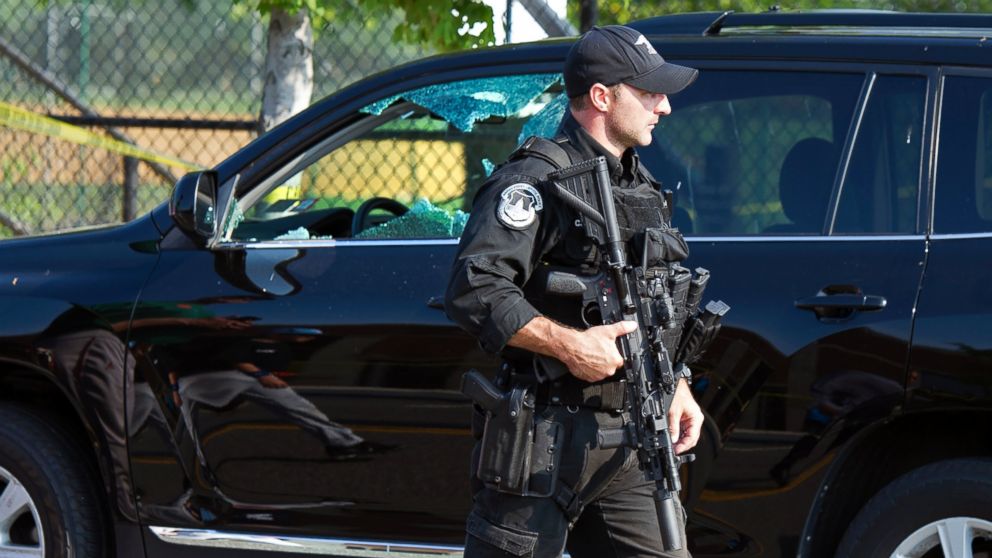Lawmakers consider boosting security after Virginia attack

— -- Rep. Cedric Richmond, D-Louisiana, the chairman of the Congressional Black Caucus, met last week with House Speaker Paul Ryan to express concern about security for members.
The meeting, along with a letter to leadership, came after Rep. Al Green, D-Texas, started receiving death threats after calling for President Trump’s impeachment on the House floor.
But now, after a gunman opened fire on Republicans practicing for the Congressional Baseball Game in Virginia on Wednesday -- wounding Rep. Steve Scalise, R-Louisiana, and three others –- that quiet conversation has exploded into public view.
On Friday, members of Congress left Washington for their districts with lingering concerns about protecting themselves, as well as their families and staff.
In the days since the Wednesday attack, members have discussed adding security at events that attract a large number of lawmakers.
“That’s something that we’re going to have to think through and rethink,” Rep. Chuck Fleischman, R-Tennessee, a player on the GOP team, told ABC News Wednesday after the shooting.
Without the Capitol Police officers on the scene with Scalise, a member of House leadership, the members would have been defenseless.
His detail, who were eventually joined by Alexandria Police and other first responders, fended off the shooter, James Hodgkinson of Illinois, killing him in the subsequent gunfight.
On Thursday, Minority Leader Nancy Pelosi, D-California, told reporters that Congress should consider boosting funding for Capitol Police to help the force protect members on and off Capitol Hill -- or even revisit their jurisdiction.
“I would support and I have suggested they need a bigger budget. Because right now, they have a perimeter that they cover and these parks were outside the perimeter,” Pelosi said. “That really maybe shouldn't be the standard of what they secure. Maybe if they secure members, tourists, press, staff, wherever there might be a gathering specifically -- specifically identified as congressional, that might be it.”
In 2016, Congress approved $393 million for Capitol Police, which was less than the agency requested. In a hearing in May, Capitol Police Chief Matthew Verderosa told the House Appropriations Committee requested funding for an additional 72 officers and 48 civilian support staff.
On Wednesday in a closed-door member briefing on the attack and subsequent investigation, lawmakers also discussed the possibility of using money from their member allowances for security purposes. The office funds, called Member Representational Allowances, are used to support offices and members’ official duties.
The group also discussed the use of strictly-regulated campaign funds for security purposes.Some members, including Rep. Barry Loudermilk, R-Georgia, want more freedom to carry firearms in Washington, telling reporters on Wednesday that “reciprocity” would be helpful for members from states with fewer firearm restrictions that the capital.
In the era of politically charged town hall meetings, members are frequently in touch with local law enforcement when they hold events at home.
Rep. Jeff Duncan, who was at the practice on Wednesday and spoke to the shooter minutes before the assault began, told ABC News he has a staffer who specifically coordinates events with local law enforcement in his South Carolina district.
Others discussed granting members in certain situations a similar level of protection as federal judges, who are guarded by U.S. Marshals.
“If you compare the sort of security that federal judges get versus the relative lack that members of Congress get, there’s clearly a pretty big imbalance there,” Rep. Brendan Boyle, D-Pennsylvania.
Despite the attack and remaining questions, Boyle and other members say they have a responsibility to remain available to constituents.
“I don’t really see a change about how accessible I am with constituents being out and about and in the community. I wouldn’t want that to change, I think we need to be accessible,” he said.



